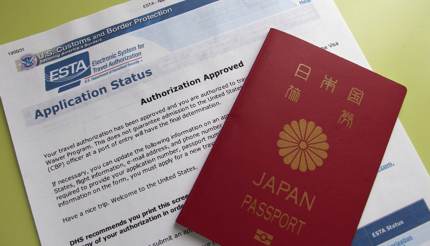Great tips that can help you avoid eight common and expensive travel mistakes
Travel has allowed us to experience different cultures, sample distinctive cuisine, and above all, give us a chance to reflect and reassess ourselves. Before each trip, we take months to save up and plan, diligently pore over review sites to find accommodation and activities that meet our preferences.
But we hardly think about travel mistakes or even local scams that will cost us dearly. It is as if we truly believe that against-all-odds, things are going to be fine and we will have a wonderful time. Most of the trips, we must say, do go smoothly and without a hitch. But an unhealthy dose of optimism has indeed known to cost travellers money and emotional distress. In this post, we aim to share eight of the most common travel mistakes and scams that can ruin your holiday and burn a hole in your pocket.
1. Visa errors
Visa errors can include making errors in your application, cutting it too close to the date of travel, assuming that you don’t need a visa (but you do), and relying on a bogus visa website to submit your documents. Even seasoned travellers make visa mistakes and end up being denied boarding a flight.
Take your time to read each visa application form and pay attention to little things like how the date is written (MMDDYY or DDMMYY) and should it be given name or just the first name. Provide the relevant supporting documents if asked. Do not skip vital documents like bank statements or hide any criminal or civil offences you have committed – they will find out anyway so it is better to be truthful.
Relying on outdated visa information is also common. For example, Malaysians could visit Canada without a visa before 2002, but citing security concerns, Canada changed the requirements. As countries update their rules from time to time, don’t leave things to chance and always check the entry requirements well in advance.
For many Europeans, travelling to the USA is easy as most European countries are listed in the Visa Wavier Program. However, not requiring a visa to the USA doesn’t mean you don’t have to apply for an ESTA (Electronic System for Travel Authorisation). In Europe, the European Parliament also plans to launch a similar scheme called ETIAS (European Travel Information and Authorisation System), which should be in place by the end of 2022. The scheme will see that visitors who don’t need a visa to visit the current 26 Schengen member countries will need to apply for ETIAS before travelling.
With many countries now requiring travellers to apply for a visa online, bogus websites abound. Travellers have been – and will continue to be – duped by such fraudulent websites. When it comes time to fly, unsuspecting holidaymakers soon find out that their documentation is invalid, potentially costing them their whole holiday.
Some visas are also notoriously hard to get too, so allow plenty of time and have options ready in case you aren’t granted the appropriate visa in time, especially during peak holiday periods.
2. Locked phone and roaming charges
With plenty of horror stories about astronomical roaming charges, travellers tend to know that it is wise to purchase a local SIM card if you are visiting a foreign country for an extended period of time, or turning on airplane mode and relying only on Wi-Fi if you are going to be there for just a weekend.
However, many people are unaware that their phones may be locked by their network provider back home, meaning buying a local SIM card won’t work. It’s best to check with your provider before you leave.
Roaming charges are another sore subject. Many Europeans assume that the Channel Islands off the French coast of Normandy are part of Europe, after all, Jersey and Guernsey are Crown dependencies. But in reality, they are not part of the UK nor EU and as a result, they are not covered by selected operators in Europe so check with your provider before you go.
On the other hand, Martinique in the Caribbean is one of the 18 regions of France and therefore is part of the European Union. This means most European mobile network companies allow you to use your phone in Martinique just like you would at home.
3. Local scams
There is always the odd occasion where we encounter something that seems quite dodgy. Far from being accosted at knifepoint or being mugged, these scams rely on deception and, in some instances, creating a sort of social contract to make you pay for something you don’t actually want. If you refuse, you may soon find yourself threatened with physical harm.
In Paris, the ‘gold ring’ scammers still prey on innocent tourists. It usually involves an old woman picking up a gold ring from the pavement and asking if you have dropped it. Most honest tourists would answer no and the scammer would offer to sell it, or cause a scene which can only be remedied by paying her some money.
In Addis Ababa, the capital of Ethiopia, scammers know that foreigners tend to think the locals are warm-hearted and eager to show the best part of their country, so they may approach you saying they know a coffee ceremony or a dance performance nearby and offer to take you there. Do not accept the invitation – you will be taken to a person’s living room where some girls will hastily put up a ‘ceremony’ and charge you US$100 worth of Ethiopian Birr.
Another classic is the broken taxi meter, one that you’ll commonly see in Central America. To navigate this, either agree your price in advance or check to see the meter is working. If they disagree, get another taxi.
Other scams include being approached by a fake police officer after someone has tried to offer you drugs. The officer will then ask for your passport and run off with it. This is similar to the photo scam – a seemingly-kind person offers to take a photo of you and your companions at a landmark using your phone or camera, but run off with it too.
So read about the local scams before you go, beware of your surroundings, don’t accept any invitation from strangers and always stay vigilant.
4. B&B or apartment scams
Accommodation scams are an increasingly prevalent problem as more travellers are finding accommodation through one of the online marketplaces. According to stats from UK authorities, a total of £6.7 million was lost to holiday booking fraud in 2017. A big sum of money was spent by unsuspecting members of the public who booked villas or holiday-let apartments that actually didn’t exist.
Checking into a place that is not exactly as advertised is also common – the photos you see online may show a clean and tidy house, but when you check-in, the bed linens are soiled, kitchen supplies are missing or the place may have an unpleasant smell. In this situation, you can contact the host and report to the online marketplace, but spending your precious holiday time dealing with such issues will undoubtedly dampen your spirits.
To avoid B&B or apartment scams, do not communicate with the host outside of the platform and avoid paying through bank transfer – only use the designated payment system within the marketplace. Also, if the properties look too good to be true, they probably are.
If you don’t want to chance it, there’s absolutely nothing wrong with sticking to traditional hotels, B&Bs, hostels and motels and preferably, book through their website.
5. Planning
When it comes to planning, some travellers plan excessively, even down to knowing what to order in every restaurant. These travellers often get anxious over details and are left disappointed when things don’t happen according to the script. On the other hand, free-spirited individuals may arrive at a destination without plan and risk being taken for a ride. Most of us tend to fit somewhere between the two extremes. Striking a meaningful balance is key and here are a few useful tips:
Do create an itinerary
Know the main attractions you want to visit but don’t make the itinerary over-ambitious. Avoid rushing from point A to point B. People tend to compromise and make mistakes when they are rushing.
Secure attraction tickets in advance
With apps and websites allowing you to book tickets in advance, there is really no reason to waste time by joining a long line. Ignore free admission days to museums or galleries too as they tend to be crowded.
Embrace tourist zones but beware of sales tactics
Let’s face it, you are not likely to visit New York without standing beneath the illuminated signs of Times Square or Cape Town without sitting down for a glass of wine at the V&A Waterfront. Tourist zones are lively, safe (safer than some neighbourhoods), and have shops operating longer than the usual hours. Embrace tourist zones but avoid restaurants that coerce you. Also, check the price before ordering.
6. Local transport
At World Travel Guide, we advocate the use of public transport as it is affordable. It also helps to reduce your environmental impact and offers an excellent way to immerse yourself in the local culture.
In the ‘Getting around’ section of our city guides, we list public transport first and also include a city sightseeing pass if it is applicable. Look for a sightseeing pass that combines top attractions with unlimited local transport as it is convenient and can save you money.
In some cities, crammed buses or trains can be a concern for solo female travellers, while routes written in the local language may also require you to ask around before finding the right one. In such circumstances, do consider taxis.
Taxi fares vary from city to city and country to country. In 2017, an online used car site in the UK looked at the cost of taking a taxi in 50 capital cities around the world. They found that the cheapest cities for taxi fares are Cairo, Bangkok, Moscow, Mexico City, Jakarta, Bangalore, Mumbai, Beijing, Kuala Lumpur and Bucharest. On the other hand, the most expensive cities for taxi fares are Zurich, Geneva, Tokyo, London, Berlin, Amsterdam, Cologne, Copenhagen, Antwerp and Stuttgart.
While the study may still ring true today, ride-sharing apps have certainly helped consumers save money in recent years. For example, if you were to book a taxi from a ride-sharing app from Zurich Zoo to Zurich Art Gallery, it may cost you 11-15 Swiss franc, but a standard taxi may set you back 25-30 Swiss franc.
So rely on public transport if you can, purchase a city pass if it is applicable, and download a few local app-sharing apps before your trip will allow you to navigate a new destination effortlessly.
7. Medical insurance
An accidental slip, getting heatstroke, suffering from food poisoning, involved in a road accident – these unpleasant incidents can happen at any time. But when you are in a foreign land, away from the healthcare system you are familiar with, a small accident can easily turn into a nightmare that ruins your trip, not to mention your financial health.
Medical emergencies are indeed costly. In 2018, The Telegraph ran a report on the risk of travelling without insurance and shared a few examples:
- The potential costs of treating a broken arm is £70,000 in the USA and £11,000 in Spain
- £21,500 may be needed if you suffer a heart problem in Barbados and need repatriation to the UK
- Falling ill with pneumonia in South Africa could set you back £31,500
- Running a high fever in New Zealand that requires hospitalisation could cost you £2,500
Having travel insurance that covers all eventualities is essential. The safest bet is to look for a travel insurance plan that offers key protection including accidents, repatriation, trip interruption, trip cancellation and delay benefits.
8. Currency exchange
With many online banks offering no-fee currency exchange, you definitely can avoid the risk of carrying a large sum of cash around or relying on a bureau de change that gives low rates.
It works by selecting an online bank in your country, open an account and incorporate the account into the payment system of your phone. Alternatively, you can request for a debit card which allows you to withdraw money from a local ATM at the destination without any fee. On the other hand, if you are relying on your normal bank card or credit card, be prepared to pay a higher fee for every transaction and withdrawal.
In that event that you do need to rely on an exchange service, only look for a licensed shop. Bear in mind that those in airports and hotels don’t offer good rates, but they are licensed and not likely to defraud you.
Enjoy a safe trip.
You may also like:

















